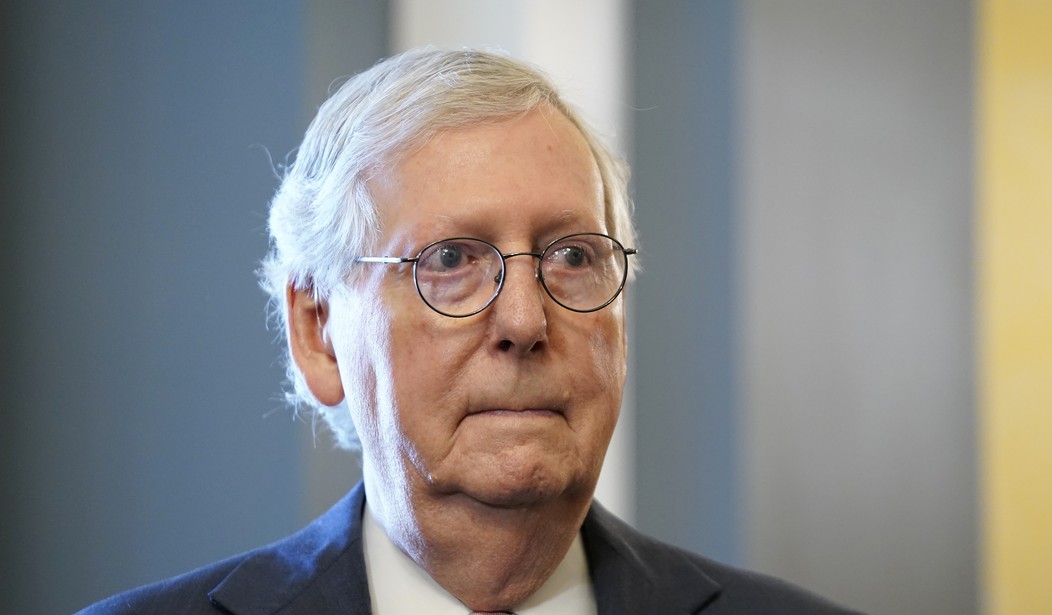Three Republican senators are circulating a letter asking their colleagues to join them in requesting that leadership elections be postponed. Due to a runoff in Georgia, Senate seats won’t be filled until early December. According to a copy of the letter obtained by Politico, Sens. Ron Johnson (R-Wis.), Mike Lee (R-Utah), and Rick Scott (R-Fla.) wrote, “We are all disappointed that a Red Wave failed to materialize, and there are multiple reasons it did not. We need to have serious discussions within our conference as to why and what we can do to improve our chances in 2024.”
The letter continued, “Holding leadership elections without hearing from the candidates as to how they will perform their leadership duties and before we know whether we will be in the majority or even who all our members are violates the most basic principles of a democratic process. It is certainly not the way leadership elections should be conducted in the world’s greatest deliberative body.”
Sen. Marco Rubio (R-Fla.), who won a commanding victory in Florida on the tails of Gov. Ron DeSantis (R-Fla.), appears to agree with the need for soul searching. On Friday, he tweeted, “The Senate GOP leadership vote next week should be postponed. First we need to make sure that those who want to lead us are genuinely committed to fighting for the priorities & values of the working Americans (of every background) who gave us big wins in states like #Florida.” Sens. Cynthia Lummis (R-Wyo.) and Josh Hawley (R-Mo.) support delaying leadership elections. Hawley indicated he would vote against McConnell as Leader. So did newly elected Sen. Eric Schmitt (R-Mo.), who mused that the Senate Republicans need new leadership.
Everyone expected the 2022 midterm elections to be a challenge for Senate Republicans early in the cycle. The rotation of seats that are up every two years did not favor the GOP this time. As the primaries concluded and Trump-backed candidates advanced to the general, disagreements within leadership started. Scott led the National Republican Senatorial Committee (NRSC) and found himself having to walk back statements that McConnell made about the upcoming election. Then, as Election Day neared, the momentum appeared to be behind the GOP nationally, and the tension went underground in anticipation of significant gains.
The gains did not materialize, and now there are hard feelings. With 1,000 votes separating Republican Adam Laxalt and Democrat Catherine Cortez Masto in Nevada, it is very possible Democrats will end up with a 51-seat majority in the Senate. If Laxalt loses and Herschel Walker wins the runoff in Georgia, it will remain at 50/50.
Blake Masters, the Republican Senate candidate in Arizona, appeared on Tucker Carlson Tonight Friday. He blasted McConnell for spending millions to support incumbent Alaska Sen. Lisa Murkowski against another Republican in a ranked-choice election. Campaigns for Mehmet Oz, J.D. Vance, and Walker also received low support from the national party funds. Trump, who endorsed Masters in the primary, spent more on David Perdue’s quixotic primary challenge to Gov. Brian Kemp in Georgia than he did on Masters’ campaign in the general.
Related: The Battle for Control of the House: Where Things Stand
The need to do a post-mortem is not limited to the Senate. Most predictions expected Republicans to win a 20-30 seat majority in a wave election. Election Day came and went with, at most, a red trickle. The House majority is still not confirmed, though it is assumed. Current predictions are a five-to-10-seat majority. J.R. Majewski, who ran for a seat in the House in Ohio, trashed the RNC’s behavior during the election.
Stories like his could be one reason there is increasing tension over leadership in the House of Representatives as well. Most observers expect Minority Leader Kevin McCarthy to become the Speaker of the House if Republicans win the majority. However, the Freedom Caucus, with Rep. Chip Roy (R-Texas) out front, is making demands on McCarthy to earn their vote.
In an appearance on Glenn Beck’s radio show, Roy said, “Kevin McCarthy does not have the 218 votes to gain the speakership. So, the question is going to become, are we going to rally with someone else, or is Kevin going to demonstrate that he’s got a vision and a plan to carry this country forward?” According to Roy, part of securing that vote will be McCarthy agreeing to hold up the National Defense Authorization until the Biden administration drops vaccine mandates. The Freedom Caucus intends to demand that the GOP take on the issues that directly affect the American people whenever it can.
In an op-ed for the Washington Examiner, he outlined several other priorities the GOP should set as the majority. He wants regular order with single-issue bills and appropriation for balanced budgets. Roy also forwards ideas for restoring trust in our Congress critters, like limiting their ability to fundraise until the House passes a ten-year balanced budget.
To accomplish some goals, Roy advocates that Republicans use the power of the purse. Ideas include withholding funding to force the Biden administration to restore our military, stop the assault on fossil fuels, and secure the border. He calls for Church Committee-style hearings to expose the abuse of power in federal agencies like the NIH and the FBI. He contends that the GOP can’t just expose the corruption. The party must fix it.
Perhaps the greatest lesson for voters after 2020 is to give money directly to the campaigns of candidates you support rather than giving to the party apparatus at the RNC or in Washington. Or even to former presidents, no matter how much they beg. Voters must also learn to lobby their representatives once elected and hold them accountable if they fail. If you want party leadership to change, remind your representatives that they represent you, not the career ambitions of their colleagues.










Join the conversation as a VIP Member